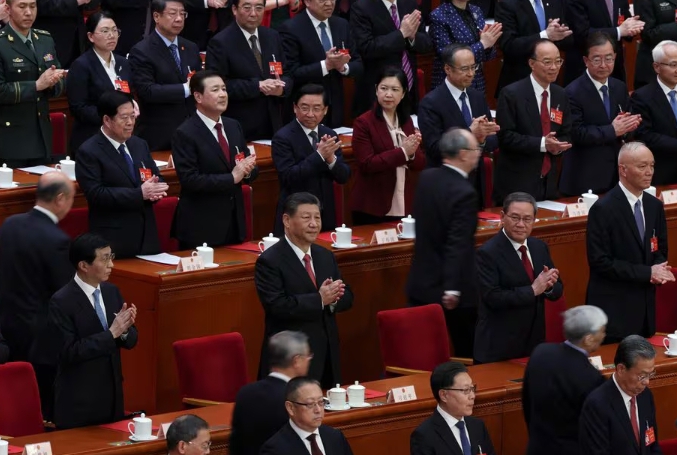
China's Parliament revised a law to effectively grant the Communist National People's Congress Party more executive control over China's cabinet more executive control over China's cabinet and the State Council after it had cancelled the post parliamentary news conference for the first time in three decades.
The ammended State Council organic law was passed by 2,883 delegate votes with eight opposing and nine abstaining during the closing day of the National Congress in Beijing.
The ammendment was the latest in a series of measures in recent years that have gradually eroded the executive authority of the state council that is overseen by the Chinese premiere Li Qiang and is nominally responsible for controlling China's 21 government ministries as well as local governments.
Legal experts continue to say that the ammendment of the State Organic law for the first time since 1982 continues to show a trend of transfering power from the state into the party's hands leaving the government to faithfully implement the party's directives.
The newly added articles to the former law stress that the State Council must resolutely uphold the Party Central Commitee's authority and its centralised and unified leadership.
The Vice chairman of the National People's Congress standing committee Li Hongzhong in an address last week to the Parliament said the revision was intended to deepen reformnof the party and state institutions and fully implement the Constitution which was changed in 2018 to reassert the Party's leadership over everything.
The Chinese National People's Party is increasing its covert control over state organs and would be seen as fully incharge un the next decade.
Since taking power in 2012, Xi has has established several new centarl party committees overseeing multiple ministries that report directly to him with some of these even encroaching on economic and financial policy, traditionally viewed as falling under the premier's remit.
China last year unveiled a sweeping government reorganization that created a new Party entity to oversee some ministries which prompted the State Council to ammend its working rules to clarify that executive decesion making power lies within the executive.
The passing of the new working rules halted the state councils meetings and resorted to instead gathering two or three times a month.
A new U.N report indicates that China over the decade is increasingly growing more dictatorial and joined the list of the 27 sovereign states that do lack freedom after 14 year ruling president Xi decided to suppress a university student uprising with military tanks last October.











